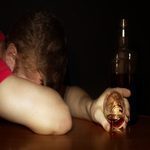College drinking is a topic we discuss fairly regularly. The reason for that is the fact that how people drink alcohol in college can have a significant impact on the course of one’s life. Nevertheless, many young adults fail to understand that alcohol can send you on a journey, one that can take years from which to return. When alcohol is finally done with you, it is likely that you will be battered, broken and short on loved ones in your life. Being cognizant of drinking behaviors that can and do lead people to addiction can save you from a lot of heartache. It can even save your life.
Binge Drinking
Many college students lose their life from alcohol related causes every year. Drunk driving and alcohol poisoning are the most common cause of cutting life short during the college years. Every weekend and beyond, college students engage in the practice of binge drinking. A practice typically defined as when men consume 5 or more drinks, and when women consume 4 or more drinks—in about 2 hours time. Teenagers and young adults are not only impulsive; they are often impatient. After the school week comes to a close, students want to unwind as quickly as possible. Simply put, they are not looking to sip their way to intoxication.
Binge drinking is extremely dangerous, and is commonly associated with negative outcomes. However, if you thought that the practice of drinking as much as you can, as fast as you can, couldn’t be topped. You would find yourself mistaken. There is a growing trend of concern occurring on college campuses across the country.
Drunkorexia
Those who have ever consumed alcohol on an empty stomach are probably aware that the intoxication ensues faster than normal. With that in mind, a number of college students have begun engaging in what is known as “drunkorexia.” The nonmedical term is used to describe the act of practicing certain diet related behaviors before, during and after binge drinking, Newswise reports. It is done in order to increase the intoxicating effects of alcohol.
The behavior can include:
- Binging and Purging
- Dieting
- Exercising
- Calorie-Restricted Eating Patterns
“It is important to realize that, in addition to the amount and/or frequency of alcohol consumption, the manner in which college students drink puts them at greatest risk for experiencing problems,” said Dipali V. Rinker, a research assistant professor in the department of psychology at the University of Houston. “Students who engage in compensatory dieting/exercise behaviors before, during, or after a drinking event to either increase the effects of alcohol or reduce alcohol calories by either engaging in bulimic-type or extreme dieting, exercise, or restrictive behaviors — such as skipping meals — are putting themselves at risk for serious negative consequences related to alcohol use. In addition to reducing risky drinking levels, college students should also make sure to stay well-hydrated and not drink on an empty stomach. Additionally, college students should make sure that they are eating healthily and engaging in healthy exercise behaviors, particularly if they choose to drink.”







